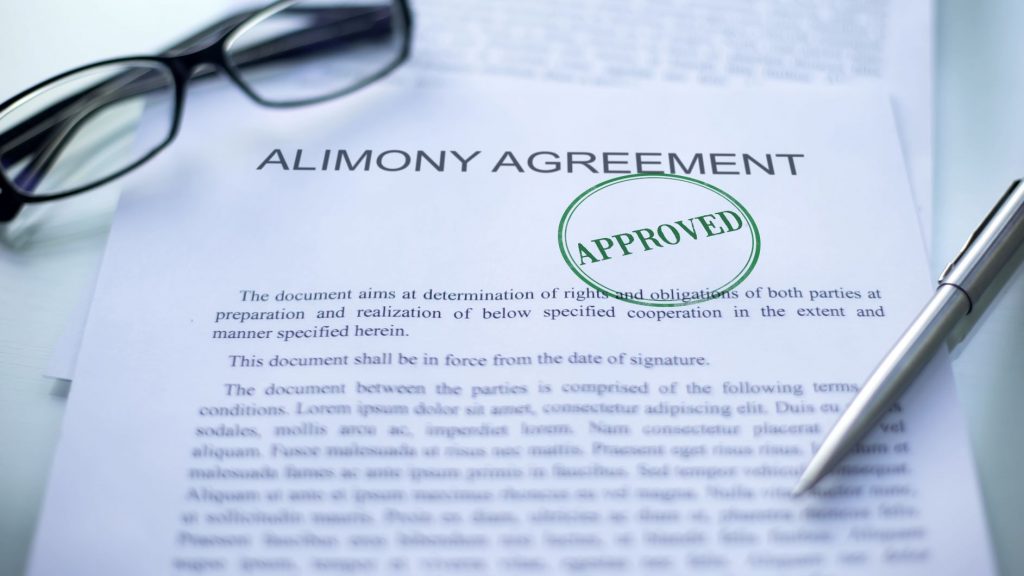Most people are familiar with term alimony. Unless you’re from Arizona and you’ve gone through a divorce, you might not be familiar with term spousal maintenance. It’s effectively the same thing. The spousal maintenance statutes and guidelines in Arizona detail what the court will consider during divorce proceedings to determine the appropriate alimony payments. If you’re considering a divorce, there are some important things to know about Arizona spousal maintenance statutes and alimony laws.
Arizona Spousal Maintenance Statutes
The state of Arizona updated the spousal maintenance statutes A.R.S. § 25-319 in 2018 to include new categories for when a spouse is entitled to alimony payments after a divorce. They were updated to include consideration for the contributions to the education, training, and career development of the other spouse. The Arizona statute also reviews whether one spouse has passed on opportunities in their career and earning-ability to help the career of the other spouse.
Arizona Spousal Maintenance Guidelines and the Need for Experienced Counsel
There are five main considerations in regards to the need and amount for alimony in Arizona. The first spousal maintenance guideline is whether one spouse will be without sufficient real and personal property to provide for their needs after the divorce. The reasonable needs of both parties can be an obvious point of contention in any divorce and will take the cost of your current lifestyle together into consideration.
The second spousal maintenance guideline that would qualify them for alimony payments is that the spouse cannot find gainful employment – or – they have custody of a child. For children of a certain age or condition, the court will consider whether or not the custodian might not be in a position to get a job or lacks the earn-ability to care for the child properly.
If a spouse has made significant contributions to any aspect of the education, training, and career of the other spouse, they may be entitled to spousal maintenance for those contributions. The Court may also consider whether one spouse passed on significant opportunities in their own career to help the career and earning-ability of the other spouse. The question the Court looks at is whether the marriage lasted long enough to impact the potential for either spouse to have reached an age where it is significantly more difficult to find employment after the divorce and earn a living.
These are the primary areas a Court considers in determining whether or not alimony payments will be included in a divorce settlement and, if so, the appropriate amount. Unlike child support payments which are largely determined by a set formula, the spousal maintenance statutes and guidelines allow a sitting judge much discretion in determining the appropriate final amount for alimony. For this reason, it is vital to work with an experienced divorce attorney in Arizona that is knowledgeable of these factors and can present the most polished and complete case on your behalf. Even if you are just considering divorce or separation, our firm can make sure you are prepared and are aware of all of your options.
Types of Spousal Maintenance in Arizona
There are a few types of spousal maintenance that can be awarded to a spouse after a divorce. The court can decide that alimony can be (1) temporary, (2) permanent or, (3) not warranted at all. Permanent spousal maintenance payments are typically given when one spouse has a disability or reached an age where they cannot find adequate work. Temporary alimony payments are much more common in Arizona and they typically are awarded to give one spouse enough time to get training and a job so they can support themselves. A case will still need to be made for what justifies adequate time to pursue and develop a career.
The court can also award spousal maintenance payments as compensation for past contributions to the other spouse’s education and career. A common example of this award would be when one spouse helped pay for college and significantly boosted the other spouse’s earning ability.
Handle Spousal Maintenance with Experienced Arizona Divorce Attorneys
Divorce can be a frustrating and slow process that often involves a lot of emotion. RSN Law helps our clients pursue a divorce with the simplest and most effective path possible. We help clients determine fair and equitable settlements for spousal maintenance so that both parties can move forward with their life. Contact RSN Law today and our 2021 Arizona SuperLawyer Alexandra Mijares-Nash at 480-712-0035 or make an appointment with our contact us page.
RSN Law intends this article to be for informational purposes, not to be relief on a specific legal matter, and does not create an attorney-client relationship.

